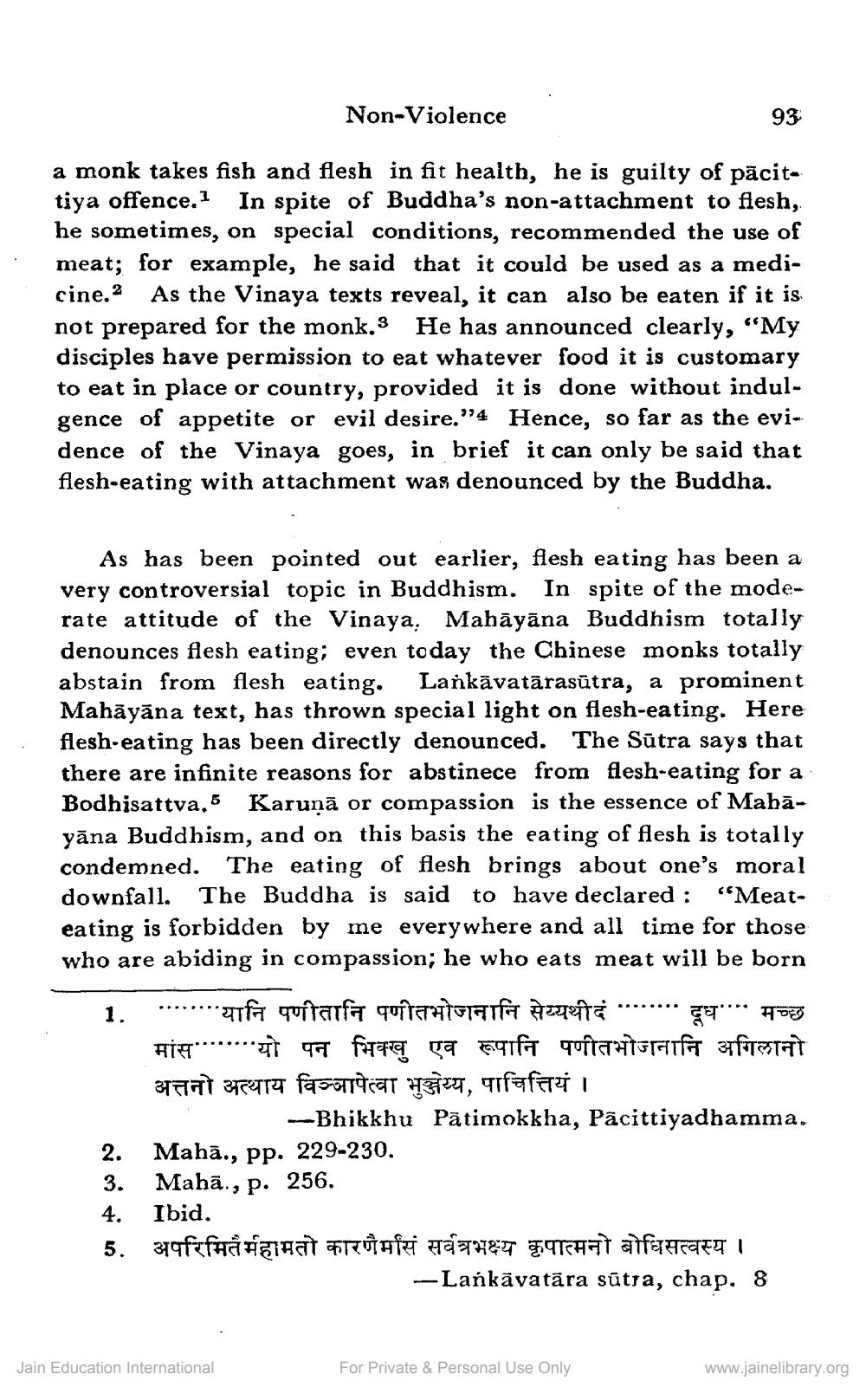________________
Non-Violence
93
a monk takes fish and flesh in fit health, he is guilty of pãcit. tiya offence. In spite of Buddha's non-attachment to flesh, he sometimes, on special conditions, recommended the use of meat; for example, he said that it could be used as a medicine.2 As the Vinaya texts reveal, it can also be eaten if it is not prepared for the monk.3 He has announced clearly, “My disciples have permission to eat whatever food it is customary to eat in place or country, provided it is done without indulgence of appetite or evil desire."4 Hence, so far as the evidence of the Vinaya goes, in brief it can only be said that flesh-eating with attachment was denounced by the Buddha.
As has been pointed out earlier, flesh eating has been a very controversial topic in Buddhism. In spite of the moderate attitude of the Vinaya, Mahāyāna Buddhism totally denounces flesh eating; even today the Chinese monks totally abstain from flesh eating. Lankāvatārasūtra, a prominent Mahāyāna text, has thrown special light on flesh-eating. Here flesh-eating has been directly denounced. The Sūtra says that there are infinite reasons for abstinece from flesh-eating for a Bodhisattva.5 Karunā or compassion is the essence of Mahayāna Buddhism, and on this basis the eating of flesh is totally condemned. The eating of flesh brings about one's moral downfall. The Buddha is said to have declared : "Meateating is forbidden by me everywhere and all time for those who are abiding in compassion; he who eats meat will be born 1. *** 27tfa qurtarfa quaHIETI Azzesta ...*** **** Hong
मांस.....'यो पन भिक्खु एव रूपानि पणीतभोजनानि अगिलानो अत्तनो अत्थाय विपेत्वा भुञ्जेय्य, पाचित्तियं ।
-Bhikkhu Pātimokkha, Pãcittiyadhamma. 2. Mahā., pp. 229-230. 3. Mahā., p. 256. 4. Ibid. 5. अपरिमितैर्महामतो कारणैर्मासं सर्वत्रभक्ष्य कृपात्मनो बोधिसत्वस्य ।
-Lankāvatāra sūtra, chap. 8
Jain Education International
For Private & Personal Use Only
www.jainelibrary.org




